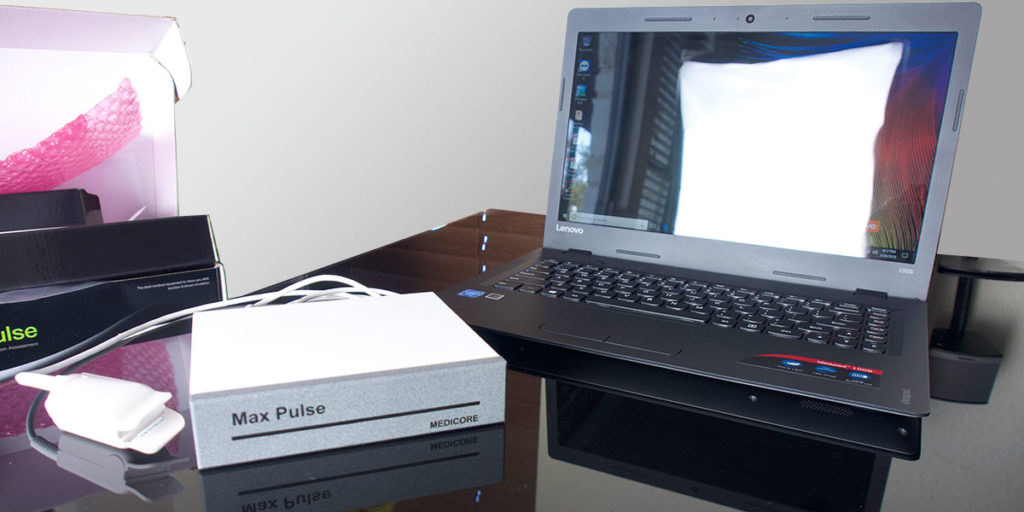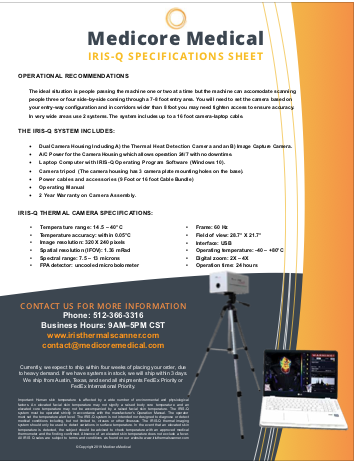 The Medicore Max Pulse is an FDA approved Class II medical screening device used to assess arterial hardening, circulation, heart rate variability, and autonomic nervous system function. The test is non-invasive and is administered by placing a photoelectric clip on the fingertip for only 3 minutes. This device provides analysis and measurements using Photoelectric Plethysmography along with Accelerated Plethysmography regarding overall cardiovascular and autonomic nervous system health.
The Medicore Max Pulse is an FDA approved Class II medical screening device used to assess arterial hardening, circulation, heart rate variability, and autonomic nervous system function. The test is non-invasive and is administered by placing a photoelectric clip on the fingertip for only 3 minutes. This device provides analysis and measurements using Photoelectric Plethysmography along with Accelerated Plethysmography regarding overall cardiovascular and autonomic nervous system health.
Measuring blood at the fingertip, the device graphs the heart beat as it moves through systolic and diastolic pressures. The more flexible that the arteries are, the more deviations will show on the graph. If the graph is tight and more regular, it can be an indicator that the arteries are stiff. The analysis also separates results for large and small arteries, along with capillaries.
If indications are that the larger arteries are constricting and appear to be hardened, then this could be a red flag indicating that further testing needs to be completed. With younger people and/or those showing no symptoms, this information would be a valuable tool in identifying health risks that may have not been realized otherwise. Max Pulse is also a good monitoring tool to compare “before and after” results once modifications are implemented to reduce cardiovascular disease risk. Arterial stiffness is a precursor for atherosclerosis and early detection along with possible treatment are crucial to prevent major cardiovascular events.
The fluctuation of HRV (Heart Rate Variability) is controlled by the autonomic nervous system. Its two functions are split between the sympathetic and parasympathetic nervous system, or fight/flight process and relaxation response. Many things can affect this balance of stress and relaxation including illness, stress, excitement, exercise, poor diet, etc. However, when someone is exposed to chronic or severe stressors, the fight/flight response stays heightened and moves in to overdrive.
Testing HRV through the Max Pulse can help to identify imbalances. If someone has a healthier HRV (variation between heartbeats is faster), it shows more resilience and flexibility. If the variation between heartbeats is low, the fight/flight system is engaged higher than it should be. Research has shown that a low HRV is associated with an increased risk of cardiovascular disease, and even death.
Max Pulse also looks at circulation for large and small arteries and shows an index on the final report which indicates whether or not circulation is optimal. If blood flow is obstructed, this is another indicator of atherosclerosis.
In the US, the Max Pulse is shipped from a Texas supplier of medical equipment. A finger probe, full-sized laptop, and software are all included. When it ships to you, it will be ready for use and just requires you to power it ON. A one year warranty is included with your purchase, and a five year warranty is available for an extra cost.
